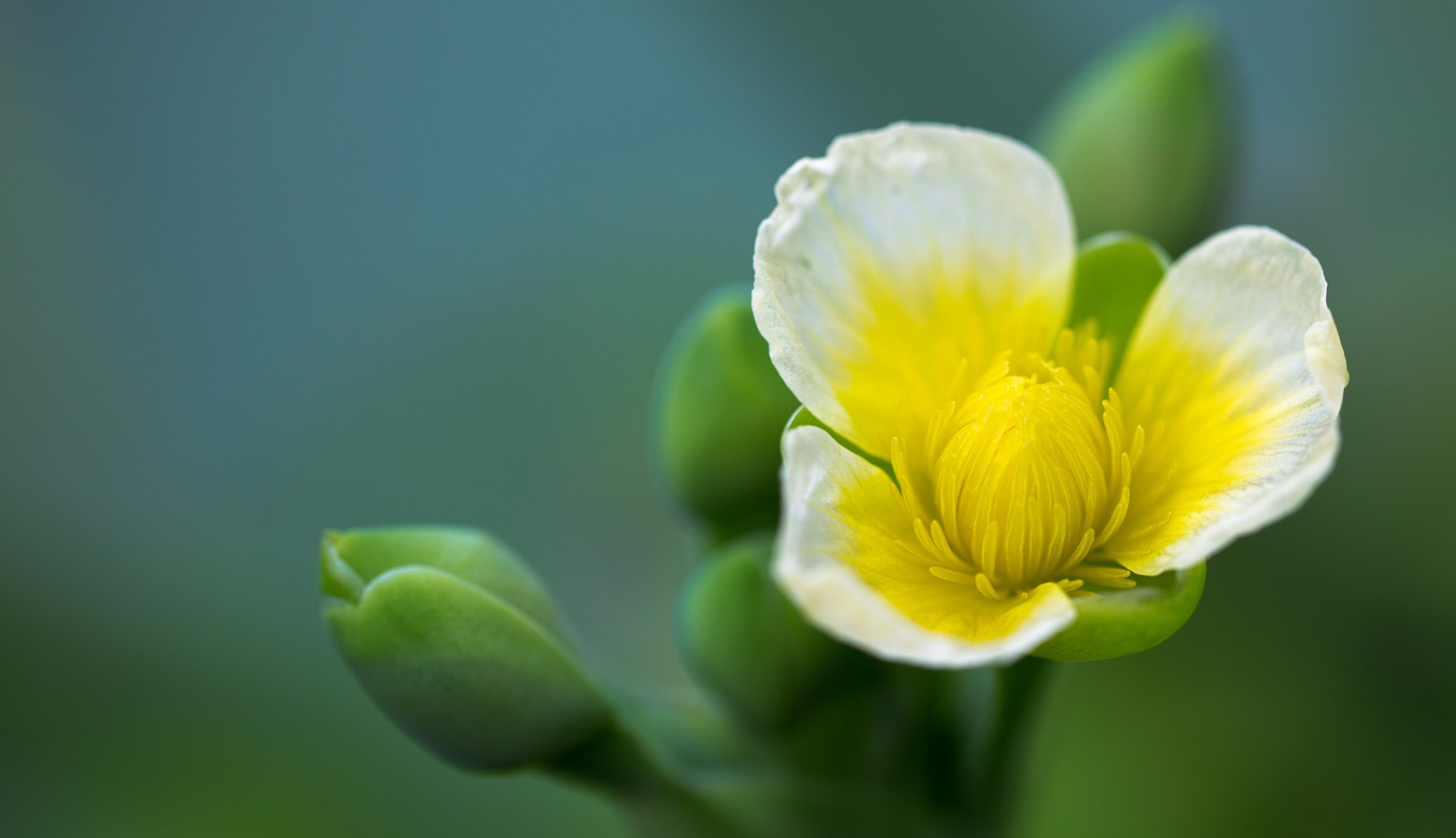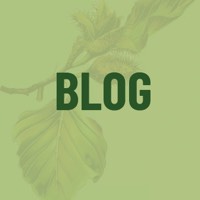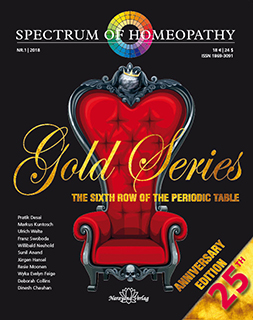

Blog archive
Follow us
Homeopathy and the world
This blog talks about interrelations of homeopathy and holistic ways of healing with the world beyond medicine, with spirituality, science and politics. The homeopathic way of thinking and questioning about problems, crises and solutions is extended to encompass more than issues of individual health. During two hundred years of work with crises and suffering we have developed a holistic way of looking at contexts and a specific way of listening, which may prove to be very helpful in collective contexts as well. In a loose series of articles I wish to show this by different current issues. This work is licensed under a Creative Commons License (Attribution-NonCommercial-NoDerivatives 4.0 International (CC BY-NC-ND 4.0)). You may distribute and reproduce it in accordance with the license terms.
(Not being a native speaker I apologize for any mistakes and appreciate any kind of amendment.) .
Jörg Wichmann, November 2017
BLOG
Thoughts about „Sceptics“ as self-declared opponents of homeopathy

The following remarks deal with the term as such, but mainly with the quotation marks, between which it is set. We know well or can look it up, what a sceptic in the true sense of the word is. Scepticism is a philosophical tradition which is following the principle to doubt established dogmas and doctrines of their own theoretical layout. Scepticism is an important part of the enlightenment era and gave us a large part of the freedom of thought that we are now used to. True philosophy will always carry a good deal of scepticism as long as it understands itself as part of the sokratic way of thinking and questioning.
Those organisations of critics of homeopathy that are impudent enough to adorn themselves with the title of “sceptics”, are but the direct opposite. They are not doubting the established doctrines or their own beloved dogmas, but the beliefs of others that they can’t stand. But to doubt the ideas of your opponent has nothing in common with the art and requirements of Scepticism. Deeming your own opinion to be the only possible truth and that of your opponent to be false and out of question, is fundamentalism in the best case and populism in the worst. True sceptics don’t point their sword of critical questioning against others but against themselves. (Example: a christian sceptic is one who doubts christian doctrines to clarify their own convictions, but not one who doubts the ideas of islam or buddhism.)
As far as the well organized groups of detractors of homeopathy calling themselves “sceptics” are concerned, they are rather fundamentalist ideologists pretending exclusive validity of their version of a naïve positivism and trying to enforce it in the whole of our society. This kind of belief system is also called scientistic (as opposed to scientific) and it is no science. It is the task of science to explain or calculate phenomena with the help of their well defined methods and tools. It is not part of their task to state which phenomena can be real and which cannot. The existance of a phenomenon is a matter of observation and not of theory.
It is essential for all public discussions about homeopathy and other alternative healing methods, that we don’t admit to the false pretence of “sceptics”. In general fundamentalists have no interest whatsoever in an open discussion or a mutual struggle for truth because they believe to know it anyway. Fundamentalists are only interested in eliminating all dissidents in one way or another – depending on their historically based possibilities this happens somewhere between ridiculing and the stake. Today we have to realize that there are fundamentalists of scientistic belief as well. And they have as much in common with real science as jihadists have with real islam and crusaders with christ. This scientistic belief system rests on some scientific paradigms of the 19th century and the idea which was common in some circles those days that the world could be thoroughly explained that way. 20th century science has overcome such mindsets long ago even though this notion has not yet arrived in all schoolbooks. To understand this means that our point cannot be to explain ourselves regarding demands of scientific rigor, that are only pretended, but not to let ourselves be provoked by dogmatic believers of scientism. We should by no means accept or even name these pseudo-“sceptics” as sceptics or scientists, but set the term in quotation marks and indicate that here are just fundamentalists talking, whose pretended aims (consumer protection) are as fraudulent as their assumed titles.
The phenomena arising in homeopathic healings or in the potentization of remedies should be fascinating to real scientists especially because they seem to defy any orthodox explanation at first glance. In the history of science such observations that are out of the ordinary range of the known and predictable, have always been the impulses for progress and changes of paradigm.
An interesting question is still open: What motivates these groups of “sceptics”? With so many grave and obvious problems in this world, it seems an extraordinary behaviour needing massive reasons to invest such a lot of personal lifetime, energy and money only to fight a medical method that is not strongly represented anyway and obviously harmless. I have to admit that I don’t know anyone of these groups close enough to get a direct impression of their mindset or background for such a bizarre behaviour. I can only speculate based on few encounters in public talks and the published material.
I haven’t read a single article of these “critics” yet, which would reflect even a minimum of factual knowledge. The so-called “critics” have obviously never learned any homeopathy, as it would be common for critics. A literary critic is one who has read literature and then talks about it sophisticatedly, and not one who is against literature in general and has never read anything. This is different with the critics of homeopathy. From this we can gather that their point is not a relevant and factual discussion and therefore well founded arguments from our side make no sense at all and will not be heard. The only point seems to be the emotional fight against and exposure of something, that they don’t understand and would actually like to extinguish completely from the face of this world. The goal of their campaigns is not to make homeopathy better by criticising its weaknesses, but to abolish it. This infers fear (Angst) as the central motivation. Only if something triggers great fear in me I have to raise energy to banish it from the world. With fear in the background we can also understand that some of the arguments brought up against homeopathy are so absurd that often we can only laugh out loud reading them. Great fear tends to distort reality. And we know from different contexts that all fundamentalisms are motivated by fear, so that the opponent is conceived as an enemy and an oversize menace. As such an imagined threat appears as a reality in their subjective perception, the persons concerned are not conscious of their fear and their behaviour seems rational and appropriate to them. As therapists we know that a rational discussion is not helpful in such cases.
Apart from staunch fundamentalists who have to fight for their scientistic belief system with all their energy, there are of course lots of free riders who hope to gain attention by copying an attitude that is becoming popular and is being hyped by the media. They are part of every popular trend and not specific for our issue, and a factual argument is not their thing of course.
It seems very likely that the public derogation of a healing method that is very popular, very cheap and very effective, and which does not fit within the established frames of technological and chemical medicine, will appeal to certain powerful pressure groups. If and by which means these pressure groups are making use of the fanaticism and fear of a few fundamentalists, or whether they make them look more important than they are, by financial or medial support, I cannot say. It seems very likely to me, but as I don’t have the means to research this issue I cannot come up with facts.
To put it in a nutshell:
The self-designation of certain organized groups of detractors of homeopathy as “sceptics” is factually wrong, it displays philosophical ignorance and it is presumptuous.
Why? Scepticism has a long philosophical tradition in the west and denotes a way of thinking that is challenging itself all the time. True sceptics make doubt their most important tool, meaning doubt about their own position, which is thus clarified in a kind of hermeneutic circle to approach truth more and more.
Doubting only someone else’s position has nothing in common with scepticism but is pure dogmatism. Those who try to present themselves as “sceptics” in our context are in reality no more than dogmatics of a fundamentalist scientism.
(You find a brilliant debate about these pseudo-sceptic arguments here.)
I wish to
emphasize that I am deeply interested in a well-informed and constructive
critical dsicussion within homeopathy. One of our greatest weaknesses lies in
the lack of such an internal argument. Together with Manish Bhatia (India) and
Iain Marrs (Canada) I have commented on this extensively in „The Sacred Cows of Homeopathy“ in
HomeopathicLinks Winter 2012.
And you can follow us on:
more than thousand
homoeopathic
books by Narayana
________________
more than thousand
homoeopathic
books by Narayana
________________
more than thousand
homoeopathic
books by Narayana
________________





